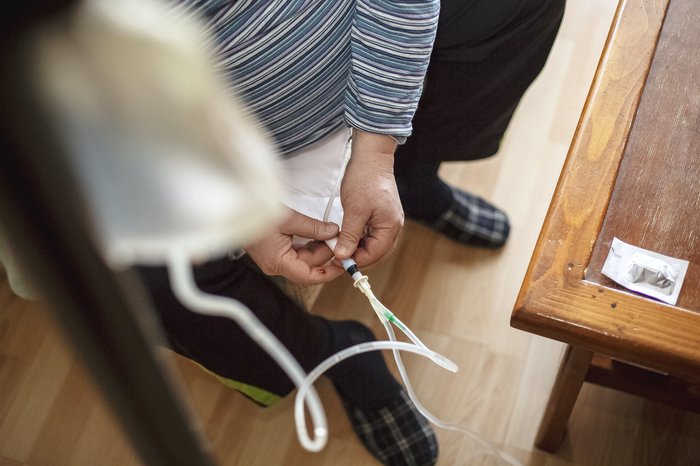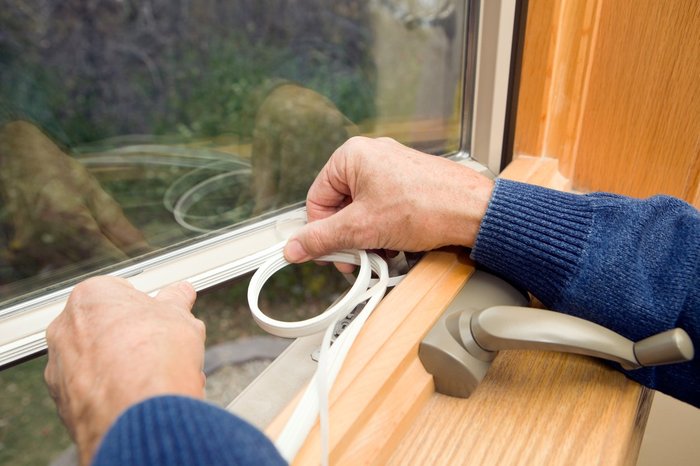When you’re affected by kidney disease, rising prices have a huge impact. To help you manage your energy bills, Kidney Care UK Patient Support & Advocacy Officer, Karolina Holewińska-Suchanek, shares her top tips to help you stay warm and safe while keeping your costs down.
1. What should I be aware of as a home dialysis patient?
If you dialyse at home, the main thing you need to be aware of is that your energy provider must not cut your power without consulting you and must act quickly if you lose power, for example due to a power cut. This is because your dialysis is vital medical treatment.
This can be particularly important to think about if you are on a pre-payment meter, which would cause your power to cut out if you run out of money on your meter. You can ask your supplier to move you to a regular meter if it is not safe or practical for you to use a pre-payment meter, for example due to your need for a dialysis machine at home.
It can also be possible to have the cost of the energy used by your home dialysis reimbursed. This varies by area, so to find out if this is available for you, check with your kidney team.

2. What should I do in the event of a power cut?
Whether you’re dialysing at home or not, anyone with a long-term health condition is entitled to extra help from their utility suppliers. This includes notifications about upcoming power disruption and support in emergencies. To receive this support, join the Priority Services Register for free.
Even if you aren’t on the Priority Services Register, if there is a power cut in your area, you could receive compensation if you were not notified or you lost power on a different date to the one on your notice.
You may also get compensation for an unplanned power cut if power was lost for a prolonged period (12 hours if not caused by bad weather, or over 24 hours if the power was lost due to bad weather, such as a storm).
You can also get compensation if your gas supply is cut off without you being given seven days’ notice or as the result of an unplanned gas cut if over 24 hours, as long as you weren’t the cause of the disruption, over 30,000 homes weren’t affected, and the network tried to avoid interruption to your supply during a storm.
To find out if you can claim compensation, contact your electricity network operator or gas network operator.
3. I'm on a meter. What steps should I take to keep my costs down?
Whether it’s your gas, electric or both on a regular meter (rather than a smart meter), there are certain steps you should take to avoid unnecessary costs.
It's important to submit a meter reading every month to ensure your bills are accurate. Without a meter reading, your energy supplier has to estimate your usage.
This means that they can overestimate, causing you to regularly overpay, or they can underestimate, meaning that you may be faced with a steep bill for any money you owe, having been undercharged. By submitting a regular reading, you can avoid problems due to inaccurate estimates.
To submit a reading:
- Ignore any numbers in red or after the decimal point.
- If you have a two-rate meter, there will be two different sets of numbers you will need to record.
- If you have an older, dial meter, simply submit the number that the arrow is on, or the lower number if it is between two.
If you are unsure, contact your provider and they can walk you through the process for your meter.
4. What quick energy saving switches I can make?
While there are some big changes you can make to reduce your energy costs, such as checking if you are eligible for an energy scheme, there are also a lot of easier options to consider.
Some of the most effective changes you can make include:
- Insulating your hot water tank and accessible hot water pipes. Using a simple insulating jacket around your water tank reduces heat loss, saving you money.
- Cutting down on the length of showers. Shaving just one minute off the length of a shower can help an average four-person household to save £120 a year, according to the Energy Saving Trust. Order a free four-minute shower timer to help you keep track of your shower time.
- Draught-proofing your home is one of the most cost-effective ways to save energy.
Looking for more energy-saving tips? Look through our 10 easy ways to lower utility bills.

5. I have anaemia and I'm always cold. How can I warm up?
As well as taking any steps you can to heat your whole house or just your most used rooms, think about heating your body as well as your environment.
- Use a warming option (such as a hot water bottle, heated insoles or USB gloves) and combine it with a sleeping bag.
- Wear thermal layers including a base layer (such as thermal leggings), a mid-layer (such as a microfleece pullover) and a top outer layer (such as a padded jacket).
- Keep your feet warm with thick or thermal socks as well as slippers. You can also elevate your feet off the cold floor by putting them on a stool or laying a rug (non-slip if on a slippery surface) or thick layer down.
MoneySavingExpert has compiled a complete guide to heating the human not the home, or read our stay-warm tips for people living with kidney disease.
6. My Direct Debit cost has increased unexpectedly. What can I do?
Due to the recent increases to the price of energy, some Direct Debit costs will increase to reflect the more expensive prices, and could also go up if your energy use is higher than the supplier’s estimates. As part of the Direct Debit Guarantee your supplier should always contact you before increasing your Direct Debit.
If you have not been notified before the increase, contact your supplier, especially if you are unsure of why the charges have increased, or you think you are being overcharged.
7. Can I get any additional help paying my bills?
If you are struggling to pay your bills, you may be able to get support from an energy trust like the British Gas Energy Trust (you don't need to be a British Gas customer). Your supplier may also have an Energy Trust/Hardship Fund, so it's worth checking with them first. Energy trusts can provide grants or help you find a local advice centre.
You could also see if you are eligible for a home energy grant or contact your local council for the details of any support in your area.
If you need additional support to manage rising utility costs, contact Kidney Care UK's Patient Support & Advocacy team who can talk through your options and help you decide on next steps.
